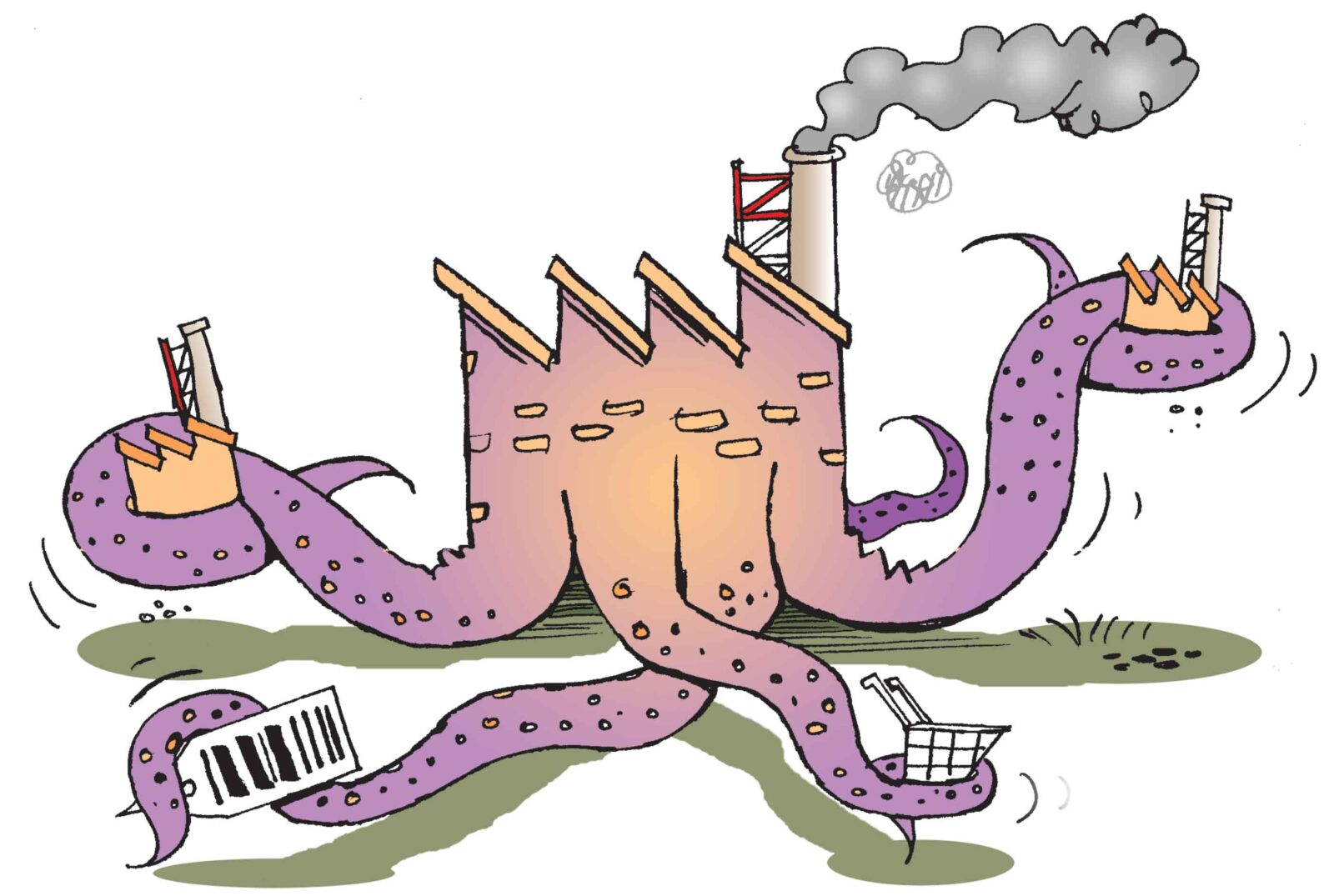THE Competition Commission of India (CCI)-the competition watchdog-has a reputation for more misses than hits. Half the people and companies indulging in unfair business practices are beyond its mandate; as far as the other half is concerned, a good number of cases it books gets closed after investigations because of internal contradictions.
“The closure rate is so high that every second case is closed. The matter was discussed in the parliamentary standing committee. They wanted to know why so many cases are getting closed-either no case is made out, or the DG was not doing the investigation properly. If so what is stopping the Commission from conducting further Enquiry. It also enjoys the same powers as the DG. It makes no sense to close the case,” admits AK Chauhan, former DG, CCI.
Has the CCI, which completed five years of enforcement on May 20 this year, lived up to its mandate and protected the interest of Indian consumers?
The Competition Act is a bundle of contradictions. Though the CCI does not entertain an individual consumer complaint, it is not averse to “class action” by a group of aggrieved end-consumers having the same interest taking up the matter jointly against loss or damage. The end-consumers, however, cannot claim damages under the Competition Act and also have to bear the litigation costs. This greatly reduces their incentive to sue.
These legal lacunae suit a new breed of competition lawyers, who know how to play the game of hide and seek, and mega-corporations who can engage them. The Act allows a combination, or an enterprise to abuse its dominant position to justify blatantly anti-competitive practices in the name of ‘economic development’. Provisions on abuse of dominance can be exploited for or against big business. An influential firm may get away without attracting penalties whereas the CCI can wind up a firm abusing its dominant position without the requirement of any evidence that it has done so.
Biased process
An Indian company with earnings of `40,000 crore cannot acquire another company without the prior permission of the CCI, while a foreign company with a turnover of $1 million can acquire a company within the territory of India without the permission of the CCI. Ironically, the Competition Act gives the controls to the government to supersede and reconstitute the CCI if it fails to discharge its functions or comply with policy directives “in public interest”.
For close to 30 years, the Monopolies and Restrictive Trade Practices Act of 1969 (MRTP ACT) was doing fine in India till suddenly, the then Finance Minister, Yashwant Sinha, in his budget speech in February 1999, announced: “The MRTP Act has become obsolete in certain areas in the light of international economic developments relating to competition laws. We need to shift our focus from curbing monopolies to promoting competition.” The Competition Act came into force on March 31, 2003, and the MRTP Act was repealed. But, still it took almost six years for the Competition Commission to be fully operational on May 20, 2009. Since that day, the CCI has been like a dormant volcano that spurts into activity once in a while. Even today, though Justice GS Singhvi, a former Supreme Court judge, is the Chairman of the Competition Appellate Tribunal (Compat), posts of the two members are lying vacant.
AFTER the MRTP Commission wound up, the pending UTP cases were shifted to the already short-staffed Compat. This led to a backlog of cases. With hardly any work, the organisation remained in limbo from 2003 to 2009; but the staff became experts in competition law by virtue of their 4-5 years’ tenure in the CCI. By the time they were due for transfer, they resigned and joined law firms. The list of such officers includes Amitabh Kumar, an IRS officer, who during his five-year stint at the CCI was a member of the committee that recommended the National Competition Policy. He joined J Sagar Associates, a law firm, as a partner. Another experienced CCI member, Vinod Dhall, now heads law firm Dhall Law Chambers. MM Sharma is Head, Competition Law Practice, at Vaish Associates. Dr S Chakravarthy, a former civil servant and member of the High Level Committee on Competition Policy, is a consultant on competition policy and law. Many such former CCI officers are now advising major Indian and MNC companies, whereas the officers who join the CCI on deputation are like new-born babies as far as competition law is concerned. Though technically the CCI too can hire highly qualified company secretaries, chartered accountants, economists, corporate and company lawyers, financial and market analysts or people who understand the intricacies of competition law and mergers, the emoluments offered by the CCI are not attractive enough.
Right from the beginning, the CCI has had several fault lines. Here are some of them:
The missing consumer: In spite of all its drawbacks, the MRTPC Act acted as a shield to protect the illiterate and ill-informed Indian consumers who could seek remedy against unfair trade practices, deception, half-truths and misleading omissions by unscrupulous traders. The CCI Act shed even that pretence and the consumers were expected to fend for themselves. This is certainly not what one would expect in a country where even after 25 years of the Consumer Protection Act (CoPRA), only 20 per cent consumers know about the existence of such a law and 93 per cent of consumers never make a formal complaint. And, out of about 7 per cent who file a complaint, only 0.3 per cent of them get relief.
Faulty organisation building process: Right from its inception, the CCI was an understaffed and underfunded organisation that functioned without a chairman for long periods of time. Though there was a provision for up to eight members in the Act, it was always expected to do more with less. For almost a year, the post of Director-General, the key person responsible for all investigations, was lying vacant. As against the sanctioned staff strength of 185, the CCI just had 35 filled-up positions in the first year. The office of the DG had just 17 officers against a sanctioned strength of 40-a deficit of 23 officers.
AS a result, a majority of the 12 investigation units headed by an additional Director-General or Joint Director-General were non-operational because there were not enough officers. Since most of the officers and men were on deputation from other departments, they had nothing in common. They had different levels of training, motivation and work ethos. Even their approach, methodology and procedures for things like search or seizure were different. Since competition law was fairly recent legislation, there was no jurisprudence or case laws to rely upon. It took them a while to understand the complexities of the law, evolve standard operating procedures and work manuals. By the time the officers started understanding all this, it was time for them to move out. Hence, AK Chauhan, the first DG of the Competition Commission, suggested that the CCI should have its own permanent cadre. Chauhan took up the issue that the office of the DG should have permanency and continuity in service. Having officers on deputation may work as a stop-gap arrangement, but in the long run the organisation needed regular officers, direct recruits and a permanent cadre to reduce the vacuum created by repatriation of officers back to their parent cadre. Direct recruitment was the only means for betterment, effectiveness, efficiency as well as good delivery mechanism and quality reports, he suggested. But his suggestions were ignored.
Neither here nor there: The status of the CCI Chairman is equal to that of a judge of the High Court and members are equal to a Secretary to the Central Government. Only the Supreme Court has the power to overturn its orders. But, though the Appellate Tribunal has the same sanctity as a court and it enjoys powers under the Code of Civil Procedure, 1908, it is not bound by the procedure laid down in the Civil Procedure Code. The DG does not have suo motu powers of investigation. He can only look into complaints received from the CCI and submit his findings to it. Even though the DG CCI has been granted inquiry powers of a civil court, he cannot prosecute or impose any penalties on firms or individuals which refuse entry or fail to cooperate with the investigating officers.
Internal conflicts within CCI: The biggest problem in the Competition Act is that it has ended up creating three power centres which are poles apart-Chairman, CCI (administrative and adjudicative wing headed by an IAS officer), a DG (investigative wing headed by an IRS Officer) and Chairman, Compat (a court of appeal headed by a former Supreme Court Judge or Chief Justice of a High Court). The ambiguities in the Act in terms of their powers and functions are the reason why many cases get stuck in the crossfire between the three.
“There was a very strong difference of opinion. Many times we would feel that there was a very strong case but the Commission would think otherwise. Our officers, who used to work hard to collect the evidence and make out the case, used to feel demotivated at times,” Chauhan, former DG of the Competition Commission, told gfiles.
CCI officials insist that the appointment, working and reporting of a DG is covered under Section 16 of the Act. The Central Government issues a notification appointing of the DG for assisting the Commission to conduct an inquiry and for performing such other functions as may be provided under the Act. “The real power rests in the Chairperson and other members of the Commission who take the oath of secrecy under Competition Commission of India Rules, 2003. The DG is just an appointee of the Central Government and an administrative wing of the CCI. Hence, his report cannot be binding on the CCI. How can a reporting officer bind the constitutional functionaries, the Commission and its members?” sources say.
As per Section 26 of the Act, the CCI can direct the DG to investigate matters. The office of the DG can close a matter if it finds no contravention or orders a further investigation if need be. The Act does not explicitly give the CCI the power to disagree with the DG and close the matter even when the DG has found a contravention. Still, on a number of occasions, the CCI has disagreed with the DG and closed the matter.
Interestingly, one of the main reasons behind the closure is violation of provisions in the Competition Act, which clearly stipulates that when the DG says that a strong case is made out and there is a violation of Section 3 or 4, in that case the Commission cannot drop or make a closure report. It has no choice but to approve it and pass remedial orders. But, if it is the other way round and the DG says that no case is made out and the matter should be closed then the Commission can go for re-investigation.
In the M/S Gulf Oil Corp Ltd vs CCI and others, the Compat ruled, “The report of the DG is only recommendatory in nature and it is not binding on the CCI in any manner. It is only if the CCI formulates an opinion on the basis of the report that the DG has either not done full investigation, or that further investigation is necessary, then it proceeds under Section 26(7) and not otherwise.”
The Supreme Court had to intervene in a dispute between the CCI and Compat. A dispute arose when Jindal Steel and Power produced an exclusive supply agreement between the Indian Railways and SAIL and alleged that SAIL’s supply to Indian Railways was anti-competitive as it was being used to deny market access to JSPL. When the CCI ordered the DG to start investigations, SAIL approached Compat. Based on SAIL’s appeal, Compat stayed the DG’s investigation. The CCI had to approach the Supreme Court when the Compat ruled that the CCI could not become a party in an appeal before the tribunal. The apex court observed that Compat could only hear the appeals after the CCI had passed proper orders and that the regulator would be a party to appeals against its orders before Compat.
Clash of the titans: Another dimension of the problem is the possibility of a clash between the CCI and several sectoral regulators. The RBI wants the banking sector to be taken out of the ambit of the Competition Act. The CCI’s parallel authority violates the spirit of the RBI Act, which grants the RBI sole authority on all banking matters. The RBI strongly believes that the CCI does not have the expertise to deal with bank mergers and CCI’s interference would only lead to delays. This has put the Corporate Affairs Ministry in a fix. If it allows the banking sector to move out of the CCI’s fold, other regulators, who also have mandates to regulate competition in their own sector, might soon come knocking at its doors. Already TRAI and some other sector regulators have opposed CCI’s overlapping jurisdiction, leading to conflicts and differences.
THE oil and natural gas sector also has tremendous potential for clashes between the CCI and the Petroleum and Natural Gas Regulatory Board which regulates the refining, processing, storage, transportation, distribution, marketing and sale of petroleum and natural gas. It has many overlapping functions, like protecting the interest of consumers, fostering fair trade and competition, monitoring prices and taking corrective measures to prevent restrictive trade practice in petroleum and natural gas.
The matter came to a pass when Reliance Industries complained to the CCI against its rivals, Indian Oil, Bharat Petroleum and Hindustan Petroleum, who allegedly formed a cartel for supplying aviation turbine fuel to Air India. The oil companies filed an application in the Delhi High Court, challenging the CCI’s jurisdiction in a sector under the authority of another regulator.
Similarly, when the CCI issued notices to Rajdhani Power, Yamuna Power and North Delhi Power for abusing their dominant positions as 90 per cent of their meters were faulty and displaying a 2.5 per cent higher reading, the Delhi Electricity Regulatory Commission (DERC) felt that the CCI was usurping the powers vested in it under the Electricity Act, 2003.











































